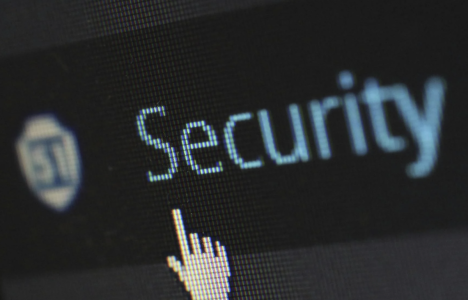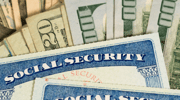Most passwords can be cracked instantly—here’s how to make yours stronger
By
Veronica E.
- Replies 2
When it comes to staying safe online, one of the easiest mistakes we make is using weak passwords.
Maybe it’s your birthday, your pet’s name, or that same one you’ve used since 2009.
But a new analysis has revealed just how risky this habit really is: nearly 98.5% of passwords examined in a major cybersecurity study could be cracked almost instantly.
That’s not a typo—most passwords are so simple that hackers barely need to try.
If you’re not sure whether yours is up to snuff, now’s the time to check.

It’s tempting to shrug off reports like this, especially if you think, “Well, those passwords were already hacked.”
But that’s exactly the problem—weak passwords are easy targets, and cybercriminals know it.
With the help of automated tools, hackers can run through millions of combinations in seconds and break into accounts without making a sound.
Once they’re in, they can steal personal information, send phishing emails from your accounts, or even access your financial details.
As Darren James from cybersecurity firm Specops explained, “Despite years of training, many users still choose weak, easily guessed combinations that cybercriminals can crack in seconds.”
Cybersecurity experts have a clear benchmark for what counts as secure. To pass the so-called “hacking test,” a password should:
Longer passwords are harder to crack because the number of possible combinations grows exponentially.
Even a supercomputer would struggle to guess a well-constructed 15-character password anytime soon.
But length and variety only go so far—if you reuse the same password across sites or if it’s been leaked in a previous data breach, your risk jumps significantly.
Let’s face it—no one wants to memorize a new string of random characters for every login.
The good news is you don’t have to.
Try these expert-backed strategies for building passwords that are both strong and user-friendly:
If managing multiple passwords feels overwhelming, you’re not alone.
That’s why companies like Apple, Google, and Microsoft are working toward a password-free future using “passkeys”—secure logins tied to your device or biometric data.
Instead of remembering a password, you might log in using your fingerprint or face ID.
While this technology isn’t widespread yet, it’s a promising step toward stronger, simpler security.
Cybercriminals don’t discriminate—they’re after the easiest way in.
And for many older adults, keeping up with digital safety tips can feel like learning a new language.
But a strong password is your first line of defense.
Whether it’s your email, your bank account, or your medical portal, protecting these with a unique, secure password is as important as locking your front door.
Read next: 16 billion leaked logins: Could yours be one of them?

Have you ever had a password scare? Do you use a password manager or stick to memory tricks? Are you curious about trying passkeys in the future? Share your experience in the comments—your tip could help someone else stay secure!
Maybe it’s your birthday, your pet’s name, or that same one you’ve used since 2009.
But a new analysis has revealed just how risky this habit really is: nearly 98.5% of passwords examined in a major cybersecurity study could be cracked almost instantly.
That’s not a typo—most passwords are so simple that hackers barely need to try.
If you’re not sure whether yours is up to snuff, now’s the time to check.

A strong password is your first line of defense against online threats—make sure yours can’t be cracked in seconds. Image Source: Pexels / Pixabay.
Why most passwords don’t stand a chance
It’s tempting to shrug off reports like this, especially if you think, “Well, those passwords were already hacked.”
But that’s exactly the problem—weak passwords are easy targets, and cybercriminals know it.
With the help of automated tools, hackers can run through millions of combinations in seconds and break into accounts without making a sound.
Once they’re in, they can steal personal information, send phishing emails from your accounts, or even access your financial details.
As Darren James from cybersecurity firm Specops explained, “Despite years of training, many users still choose weak, easily guessed combinations that cybercriminals can crack in seconds.”
Also read: This password mistake could jeopardize your online security—find out why!
What makes a strong password?
Cybersecurity experts have a clear benchmark for what counts as secure. To pass the so-called “hacking test,” a password should:
- Be at least 15 characters long
- Use a mix of at least two character types—like uppercase and lowercase letters, numbers, and symbols
- Be unique to each account (no reusing!)
Longer passwords are harder to crack because the number of possible combinations grows exponentially.
Even a supercomputer would struggle to guess a well-constructed 15-character password anytime soon.
But length and variety only go so far—if you reuse the same password across sites or if it’s been leaked in a previous data breach, your risk jumps significantly.
Also read: You could lose access to all your accounts soon—Microsoft's urgent warning that you can't afford to ignore!
Tips for creating passwords you can actually remember
Let’s face it—no one wants to memorize a new string of random characters for every login.
The good news is you don’t have to.
Try these expert-backed strategies for building passwords that are both strong and user-friendly:
- Use a passphrase: Combine a few unrelated words with a symbol or number. Example: Tulip7Ocean!Shoes.
- Mix things up: Avoid predictable patterns. Switch up capitalization, symbols, and placements.
- Ditch the obvious: No birthdays, names, or sports teams—these are the first things hackers try.
- Keep it unique: Use a different password for every account, especially for banking, email, and medical portals.
- Try a password manager: These apps can generate and store complex passwords for you—so you only have to remember one strong master password.
Also read: What to do if your email gets hacked—and how to lock it down for good
A glimpse into the future: password-free logins
If managing multiple passwords feels overwhelming, you’re not alone.
That’s why companies like Apple, Google, and Microsoft are working toward a password-free future using “passkeys”—secure logins tied to your device or biometric data.
Instead of remembering a password, you might log in using your fingerprint or face ID.
While this technology isn’t widespread yet, it’s a promising step toward stronger, simpler security.
Also read: Revealed: Are you using one of these hackable passwords? Change it now!
Why this matters—especially for older users
Cybercriminals don’t discriminate—they’re after the easiest way in.
And for many older adults, keeping up with digital safety tips can feel like learning a new language.
But a strong password is your first line of defense.
Whether it’s your email, your bank account, or your medical portal, protecting these with a unique, secure password is as important as locking your front door.
Read next: 16 billion leaked logins: Could yours be one of them?
Key Takeaways
- Nearly 98.5% of passwords in a recent study were deemed weak enough to be cracked instantly by hackers.
- To be considered strong, a password should be at least 15 characters long and include a mix of uppercase, lowercase, numbers, and symbols.
- Reusing passwords or using ones that have already been exposed in data breaches increases your risk, no matter how long they are.
- Experts recommend using passphrases, avoiding obvious choices, and trying password managers or passkeys for better security.
Have you ever had a password scare? Do you use a password manager or stick to memory tricks? Are you curious about trying passkeys in the future? Share your experience in the comments—your tip could help someone else stay secure!






